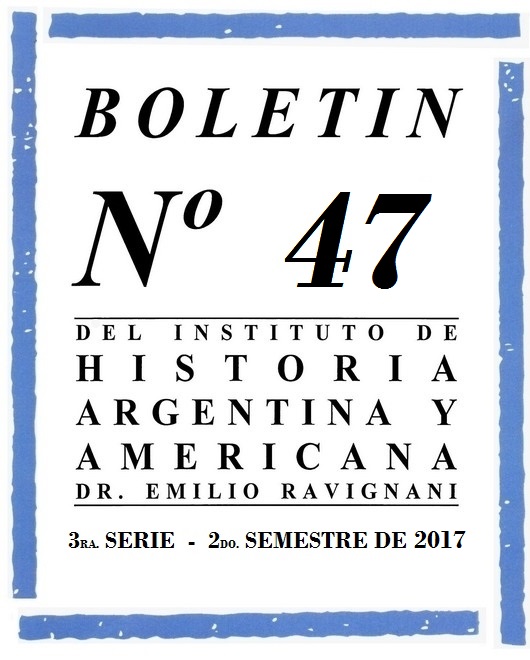Anarchists and police officers in the South American Atlantic World: a transnational network, 1890-1910
Abstract
This article analyzes the emergence of police cooperation mechanisms oriented to the surveillance and expulsion of anarchists from the South American Atlantic region. With the aim of widening the most common approaches on the matter -most of them focused on the effects of repression policies inward national borders- this article offers a geographic delimitation that covers the connections between police forces from Buenos Aires, Montevideo and diverse Brazilian port cities. Based on the reconstruction of epistolary exchange and abundant telegrams, the article outlines a particular cartography that lets us rethink the routes of repression and banishment focusing on the dynamics that foreigners’ expulsion caused in the ports of this region. Even though police sources are the key element of this study, the article also analyzes commercial press and anarchists writings.Downloads
The copyright is transferred to the Boletín, but the authors may retrieve them and reproduce their work in other media or formats by means of a written request to the Editorial Committee. In such cases, the Boletín will be cited as the first publication of the work.
The works are licensed under a Creative Commons Attribution-NonCommercial 4.0 International License, which allows others to share the work with an acknowledgment of their authorship and initial publication in this journal.
Also, by written request to the Editorial Committee of the Boletín, the authors may separately establish additional agreements for the non-exclusive distribution of the version of the work published in this journal (for example, placing it in an institutional repository or publishing it in a book), with an acknowledgement of its initial publication here. No commercial uses are allowed.



















